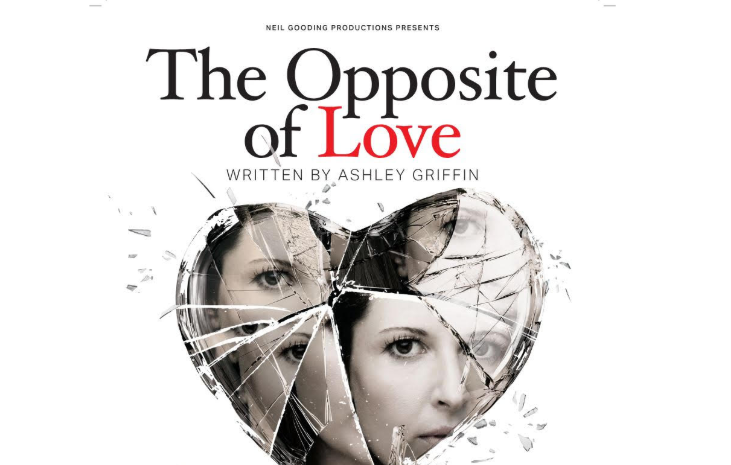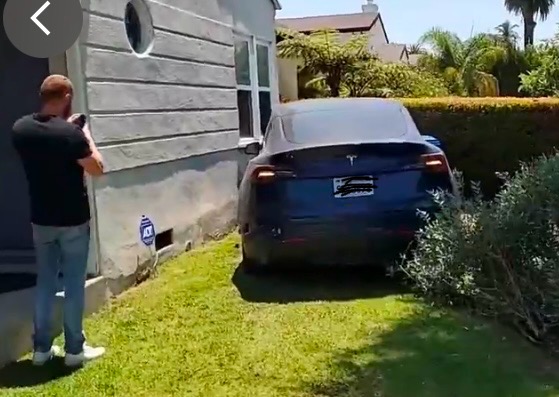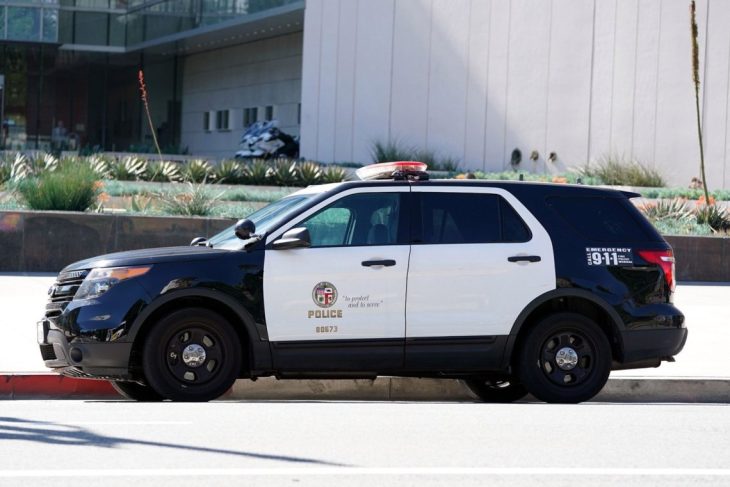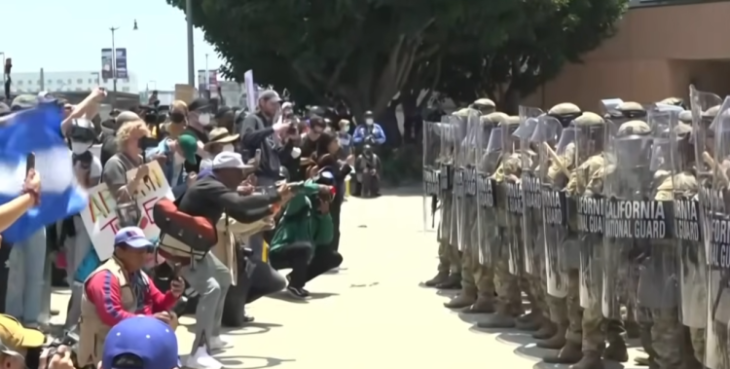
A black Los Angeles police sergeant sued the LAPD today, alleging he was the victim of a backlash for speaking out against alleged racism in the department.
Sgt. Wayne Guillary’s Los Angeles Superior Court lawsuit alleges discrimination, harassment and retaliation and is the second such case he’s brought against the LAPD. He’s seeking unspecified damages.
An LAPD spokesman could not be immediately reached for comment on the suit.
According to Guillary’s court papers, he was raised in Watts and told his mother during the 1965 riots that he wanted to join the LAPD one day “to make a difference.”
Guillary became a police explorer and eventually a sworn officer in 1981, and was made the LAPD’s officer in charge of recruitment 16 years later, according to his lawsuit.
“However, plaintiff discovered LAPD internal recruitment documents which stated that the LAPD was hiring too many ‘N-word(s)’ and ‘mud ducks,”‘ the suit alleges.
Guillary complained to his bosses, but was told that he “supervised too black” and was demoted to an office where he worked by himself and had “no responsibilities,” the suit alleges.
Guillary sued the LAPD in 2001 and reached a settlement, according to his latest court papers, which say that he had “continued his career, thinking the racism he experienced in the past was behind him.”
In June 2013, Guillary was berated and demeaned by a captain for merely informing his supervisor of a traffic accident in which an officer was taken to the hospital, his suit says.
Guillary, who believed the captain’s reaction was racially related because the plaintiff had spoken out about alleged LAPD discrimination, expressed his concerns in an email to the chief, the suit states.
In January 2014, Guillary appeared before the police commission to report his concerns about “ghost cars,” which, his suit alleges, is a “scheme perpetrated by command staff … whereby patrol divisions would have people log into squad car computers to make it appear that people were on patrol when they really were not.”
Guillary was back before the commission in August 2014 to speak out against Chief Charlie Beck’s handling of an incident involving Shaunn Hillman, a white officer who allegedly made a racial slur against blacks in a bar while off duty, the suit states.
Beck overruled recommendations by high-ranking police officials and a Board of Rights panel and declined to fire Hillman, whose uncle worked for the LAPD, according to the suit.
In January, Guillary says he received his first notice to correct performance deficiencies after a late-night car chase two months earlier in which an officer-involved shooting occurred.
It was the first such discipline in his 34-year career, according to Guillary, who says he was punished for allegedly not reporting the incident even though he maintained he did so.
Guillary was further retaliated against in March by being told he could no longer be a watch commander because of a 1997 medical condition that had never been used against him before, according to his suit. The action left him with no field responsibilities and no access to the commanders’ log, the suit states.
Guillary says the alleged discrimination has damaged his reputation, hampered his ability to be promoted and will “cause him to have to take a different retirement path” that could force him to quit earlier than he expected to protect his health and well-being.
Guillary made what he called a “personal appeal” to disgruntled ex- officer Christopher Dorner to surrender after his 2013 killing spree.
Through the website of Los Angeles Urban Policy Roundtable President Earl Ofari Hutchinson, Guillary said he still had concerns about racism in the department but believed Beck was trying to make the LAPD a better organization. He and a black former LAPD officer, Joes Jones, asked Dorner to stop killing any more people.
Dorner, who penned a manifesto claiming he was forced out of the department due to racial discrimination, killed four people before dying in a standoff with police in a cabin in the San Bernardino Mountains in February 2013.

























